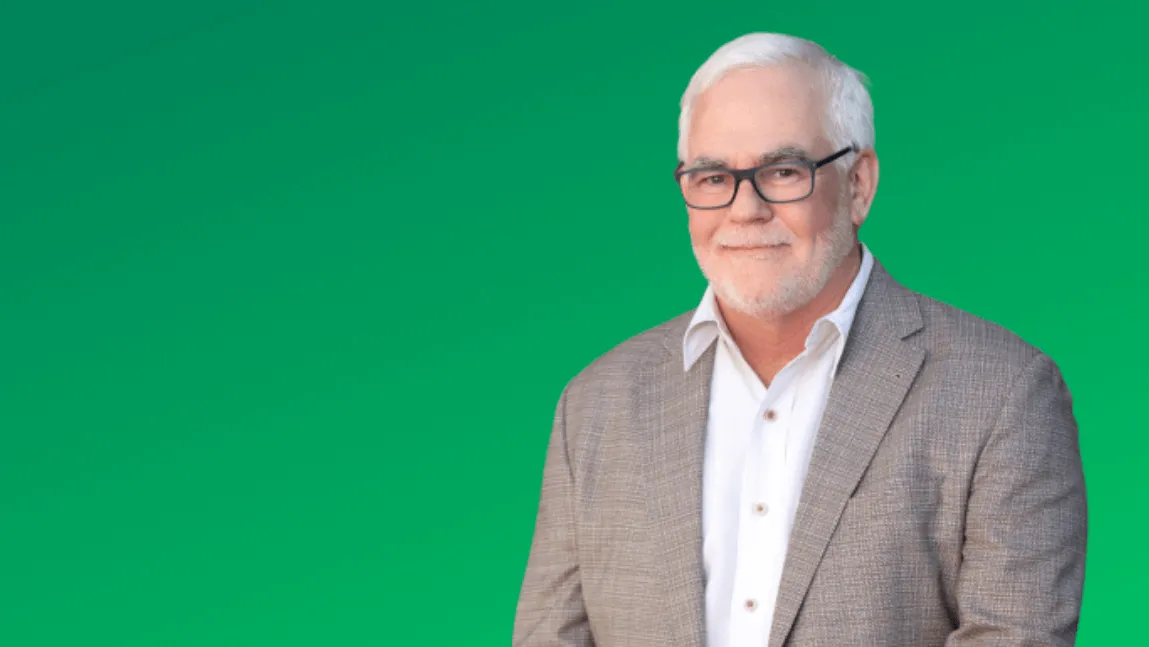For Michael Marcotte, becoming a journalist might have been a matter of destiny.
A son of a former news broadcaster, Marcotte cites his father’s career as the most powerful influence on his own trajectory.
“My dad was in radio and television and, even though I’m one of nine kids and I’m the only one who followed in those footsteps, I think that was a compelling updraft, if you will,” Marcotte said.
Even so, Marcotte wasn’t fully sold on becoming a reporter. But as an undergrad at the University of Georgia, he found himself gravitating toward the college’s radio station.
“Eventually, I [started] running the little newsroom there and ended up getting my degree in journalism,” he said. “I was drawn to that path and enjoyed it all along the way and it just kept reinforcing itself as something I liked to do and seemed to be pretty good at.”
Unlike his father, Marcotte went into public broadcasting, whereas his dad was more of a commercial broadcaster.
“Some of the factors that may have influenced my dad weren’t necessarily factors that influenced me. I honestly was drawn to the social impact that it can make; that journalism can do a lot of good in the world,” Marcotte said.
A stint in the army, as Marcotte put it, was his ticket away from his hometown of Buffalo, New York, and catapulted him into his college career.
“The army sent me to the South and I kind of liked it. So I ended up cashing in my GI Bill in the South and that’s why I chose Georgia and they had a very good journalism program,” Marcotte said.
Flash forward decades later, Marcotte is retired, as of January. His years in the journalism field spans years in broadcasting, opening his own consulting firm focused on public media newsrooms and diving into the world of academia. His last stop was the University of New Mexico as the school's only professor of practice.
At the university, Marcotte created the New Mexico Local News Fellowship Program. Though, it wasn’t a direct route.
While at academia and journalism conferences, Marcotte ran into Josh Stearns, who works at the private foundation Democracy Fund. The foundation works to strengthen American democracy.
“Josh is listening to me like, ‘Dude, I need resources, I need help. We have a lot to do in New Mexico’ and Democracy Fund Public Square Project was scanning around in different states wanting to sort of invest in its selected priority states and, lo and behold, they included New Mexico in their short list,” Marcotte said.
The Democracy Fund hired Marcotte as a consultant to map the local news ecosystem in the state. This work, along with the urging of journalist Sarah Gustavus Lim, who worked with Marcotte on the map, inspired the fund to financially back a mechanism to grow local news across the state. Thus, the New Mexico Local News Fund was born (Lim is the founder).
Lim returned to Marcotte with a problem: how can New Mexico train quality journalists and, most crucially, keep them?
“I gave her a couple of different scenarios and, ultimately, we decided on a post-graduate fellowship. A student of journalism from any college in New Mexico, when they graduate, can apply and step into a [New Mexico] newsroom,” said Marcotte. The Democracy Fund paid for the students’ salaries, which took the risk off the newsrooms, according to Marcotte.
The pilot originally was a six-month fellowship and then extended to nine months. Any newsroom in New Mexico can open their doors to host students.
The New Mexico Local News Fellowship Program just finished its sixth year. It’s expanded from four fellows to five and, now, to seven fellows. Summer interns were also added. In its next iteration, the fellowship will span an entire year.
A big reason for the program’s growth is state funds. In 2023, New Mexico gave $125,000 for fellowships and internships run by the New Mexico Local News Fund (the fellowship is under this fund). This year, the state legislature kicked in $200,000, Marcotte said.
“We’re a small state and it’s a part-time legislature…They are very receptive. They know the problem, they see what’s happening to local journalism,” Marcotte said, who testified to the legislative Senate panel about the fellowship. But he’s adamant that he stays out of lobbying.
Public funding for local journalism is crucial given the crisis it’s undergoing, not just in New Mexico, but across the country.
“We’ve just seen the traditional business model for local journalism bottoming out,” said Anna Brugmann, director of policy at Rebuild Local News, an organization that works to save local news via public policy. “We are way behind the globe when it comes to public funding.”
And while Marcotte is no longer managing the program, he helps where he can. He’s also grateful to hubs like the Center for Community News, based at the University of Vermont, which connects programs like his across the nation to share lessons and cultivate solidarity.
“I’m so thankful for Richard [Watts, CCN’s director] for giving us a megaphone. Suddenly, we realized we’re all not alone here. There really is a large effort if we can just share best practice and tips, support each other. That’s a pretty hopeful sign,” Marcotte said.
Still, Marcotte is cognizant of the challenges the fellowship faces but sprinkles in optimism too.
“There’s still quite a mountain to climb out there and I think New Mexico’s got a pretty good story to tell,” Marcotte said. “I think if we can do it here, a lot of other places can figure it out there.”
